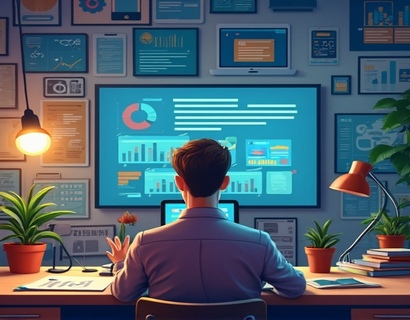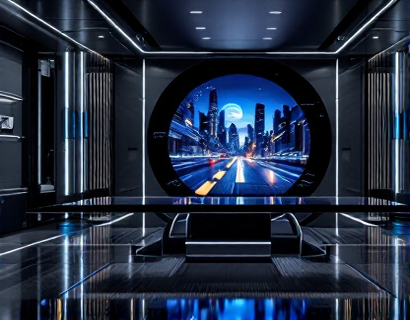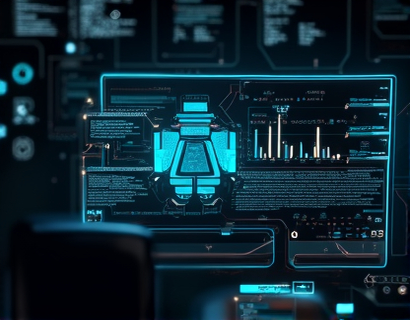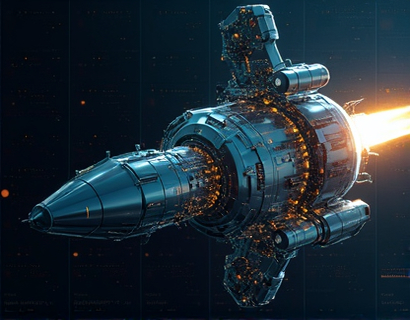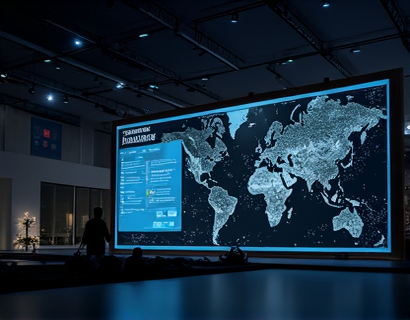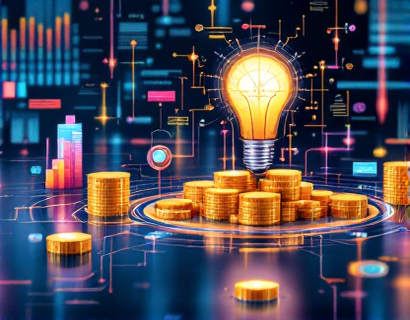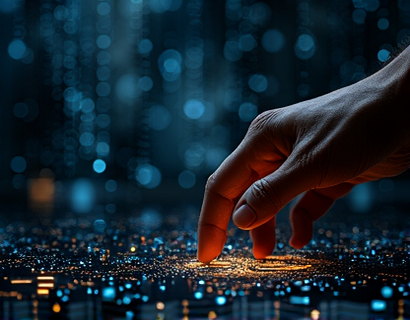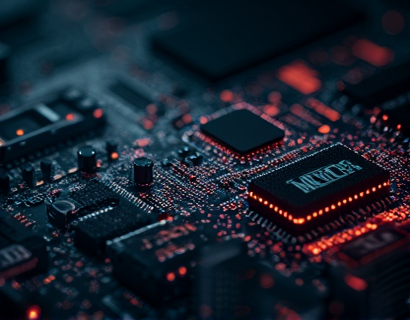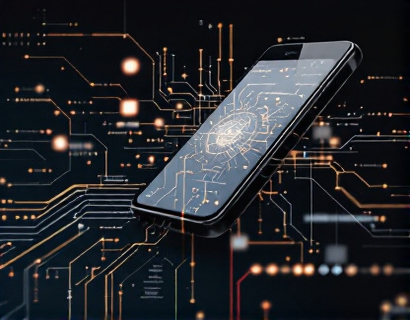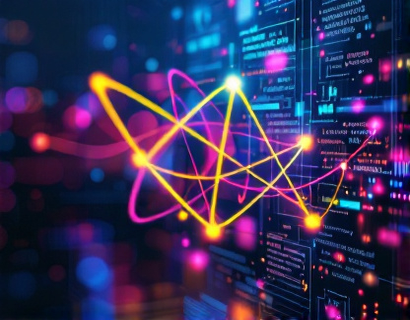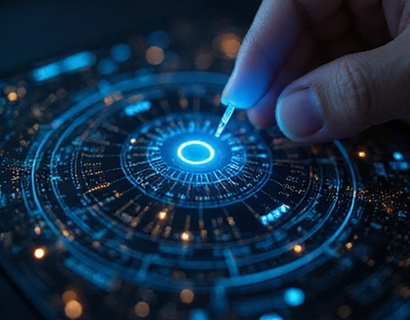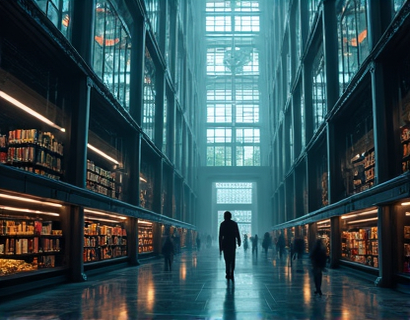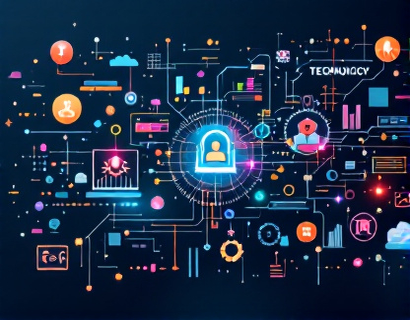Decentralized Innovation: Unlocking Next-Gen Digital Transformation with AI and Crypto Synergy
The digital landscape is undergoing a profound transformation, driven by the synergistic power of artificial intelligence (AI) and cryptocurrency. This convergence is giving rise to decentralized innovations that promise to redefine user experience and engagement across interconnected applications and services. As tech-savvy innovators and early adopters increasingly explore the realms of cryptocurrency, AI, and decentralized applications, it becomes crucial to understand how these technologies are reshaping the future of digital solutions.
Decentralized innovation, at its core, involves leveraging blockchain technology and decentralized networks to create systems that are transparent, secure, and resistant to central points of failure. When combined with AI, which offers unparalleled capabilities in data analysis, pattern recognition, and autonomous decision-making, the potential for transformative digital solutions becomes immense. This article delves into the ways AI and cryptocurrency are merging to drive the next wave of decentralized digital transformation, enhancing user experiences and fostering greater engagement in the evolving tech ecosystem.
Understanding Decentralized Innovations
To grasp the impact of decentralized innovations, it's essential to first understand the fundamental principles of decentralization. Traditional centralized systems rely on a central authority or server to manage and control data and transactions. In contrast, decentralized systems distribute these functions across a network of nodes, ensuring no single entity has control. This distribution not only enhances security by eliminating single points of failure but also promotes transparency and trust among users.
Blockchain technology is the cornerstone of decentralized innovations. It provides a tamper-proof ledger for recording transactions, ensuring data integrity and immutability. Smart contracts, self-executing contracts with the terms directly written into code, further enhance the automation and reliability of decentralized systems. These contracts can trigger actions based on predefined conditions, reducing the need for intermediaries and lowering transaction costs.
AI in Decentralized Systems
AI plays a pivotal role in enhancing the capabilities of decentralized systems. Machine learning algorithms can process vast amounts of data to identify patterns, predict trends, and make informed decisions. In a decentralized context, AI can be deployed across the network, enabling decentralized data processing and analysis. This distributed approach not only improves efficiency but also ensures that data remains under the control of its owners, enhancing privacy and security.
One of the key applications of AI in decentralized systems is in the realm of decentralized finance (DeFi). DeFi platforms leverage AI to offer sophisticated financial services such as lending, borrowing, and trading, all without traditional financial intermediaries. AI algorithms can analyze market data in real-time, providing users with insights and recommendations to optimize their financial strategies. This democratizes access to financial services, making them available to a broader audience.
Enhancing User Experience and Engagement
The combination of AI and decentralized technologies significantly enhances user experience and engagement. Decentralized applications (dApps) powered by AI can offer personalized and intuitive interfaces, adapting to user preferences and behaviors. For instance, AI-driven recommendation systems can suggest relevant content, services, or products based on user interactions, creating a more engaging and tailored experience.
Moreover, AI can improve the usability of decentralized platforms by automating complex tasks and providing seamless interactions. Voice assistants and chatbots, driven by AI, can facilitate user interactions, making it easier for non-technical users to navigate and utilize decentralized services. This reduces the learning curve and increases adoption rates, fostering a more inclusive digital ecosystem.
Interoperability and Ecosystem Integration
Interoperability is a critical aspect of decentralized innovations. As different blockchain platforms and decentralized applications emerge, the ability to seamlessly interact and exchange data across these systems becomes essential. AI can play a crucial role in achieving interoperability by developing protocols and standards that enable different decentralized networks to communicate and work together efficiently.
Decentralized ecosystems are not isolated entities but part of a larger, interconnected web of technologies and services. AI facilitates this integration by analyzing and harmonizing data from various sources, ensuring smooth operations and enhancing the overall user experience. For example, cross-chain bridges, enabled by AI, allow assets and data to move between different blockchain networks, expanding the scope and utility of decentralized applications.
Security and Trust in Decentralized Systems
Security and trust are paramount in decentralized systems, and AI can significantly bolster these aspects. AI-driven security solutions can detect and mitigate threats in real-time, identifying anomalies and potential vulnerabilities before they can be exploited. Machine learning models trained on historical data can predict and prevent cyberattacks, ensuring the integrity and safety of decentralized networks.
Transparency is another cornerstone of trust in decentralized systems. Blockchain's inherent transparency, combined with AI's ability to provide real-time insights and audits, creates a highly trustworthy environment. Users can verify transactions and data integrity with ease, fostering confidence in decentralized applications and services.
Case Studies and Real-World Applications
Several real-world applications demonstrate the transformative power of AI and decentralized innovations. One notable example is decentralized autonomous organizations (DAOs), which use blockchain and AI to govern and manage collective projects. DAOs leverage smart contracts and AI-driven decision-making to ensure transparent and democratic governance, allowing members to participate in decision-making processes through token-based voting systems.
Another area where AI and decentralization are making waves is in the supply chain industry. Decentralized supply chain management platforms use AI to track and verify the authenticity and origin of products, ensuring transparency and reducing fraud. These platforms can optimize logistics and inventory management, leading to more efficient and sustainable supply chains.
Challenges and Future Prospects
Despite the immense potential, the integration of AI and decentralized technologies is not without challenges. Scalability remains a significant issue, as blockchain networks often struggle to handle high transaction volumes. However, ongoing research and development in layer 2 solutions and more efficient consensus mechanisms are addressing these concerns.
Regulatory frameworks are another area that requires attention. As decentralized innovations gain traction, governments and regulatory bodies are beginning to take notice, leading to the development of policies and regulations to govern these technologies. Balancing innovation with regulation will be crucial to ensure the sustainable growth of decentralized ecosystems.
Looking ahead, the synergy between AI and decentralization is poised to unlock new frontiers in digital transformation. As technologies continue to evolve, we can expect more sophisticated and user-friendly decentralized applications, further enhancing the digital experience. The future holds the promise of a more decentralized, secure, and intelligent web, where users have greater control and benefits from the digital services they use.
In conclusion, the combination of AI and decentralized technologies represents a powerful force for innovation, driving the next generation of digital solutions. By enhancing user experience, ensuring security, and fostering interoperability, these technologies are reshaping the digital landscape. As we continue to explore and harness their potential, the possibilities for decentralized innovation are truly limitless.



